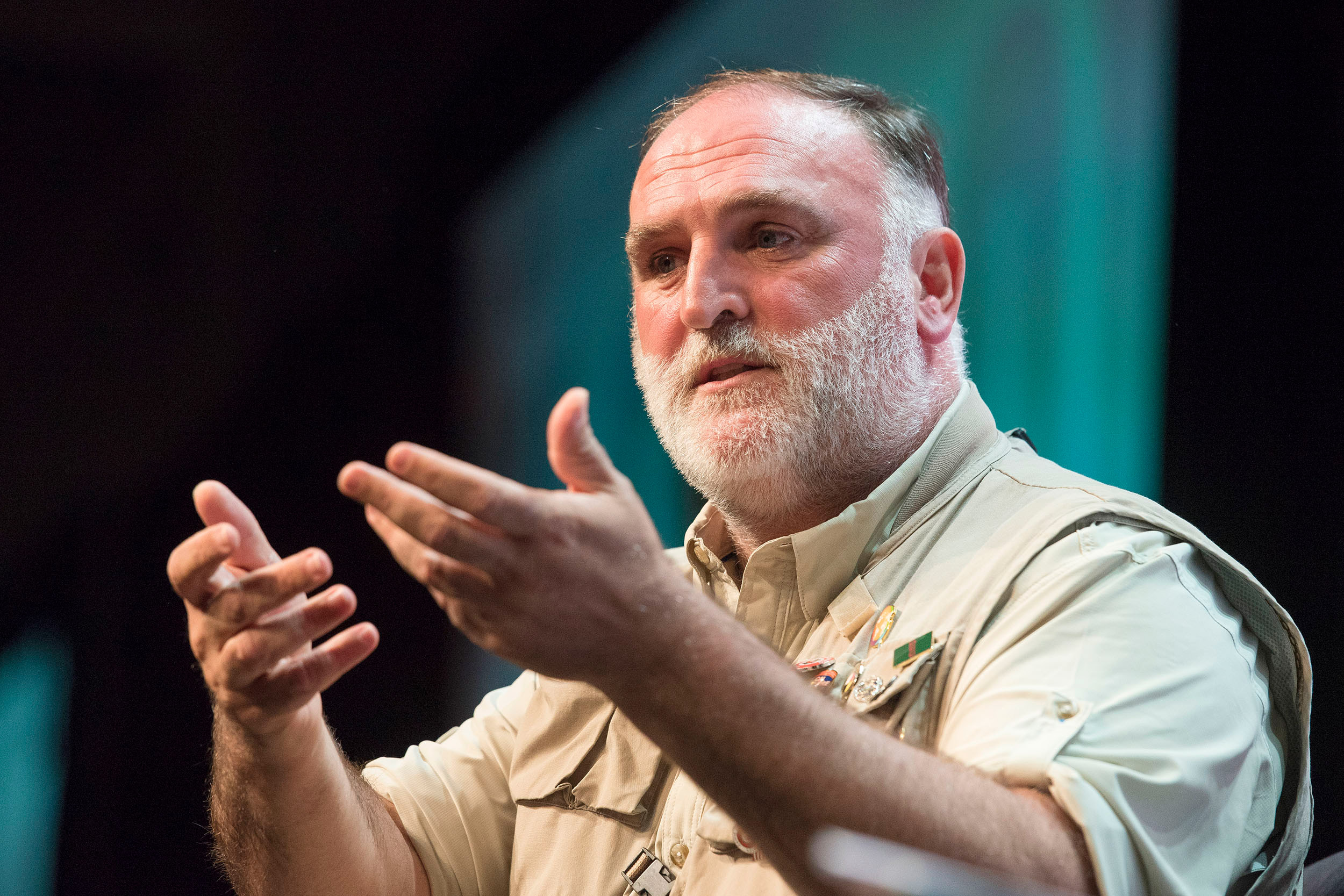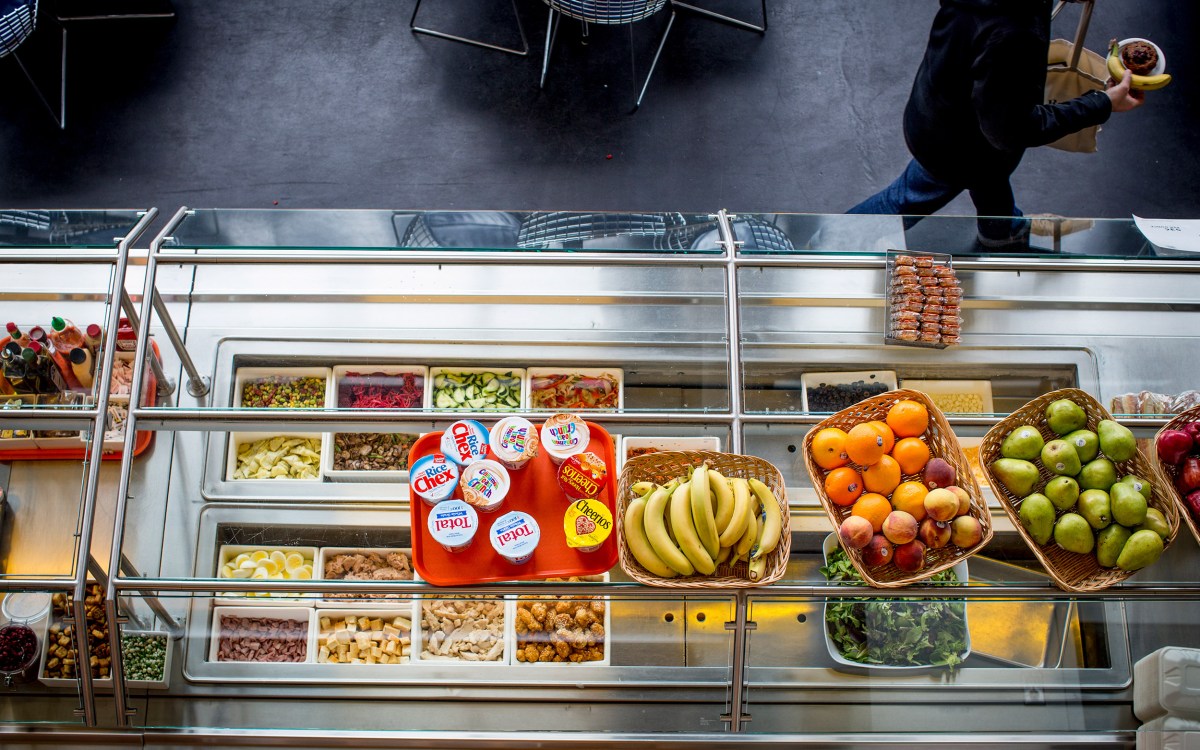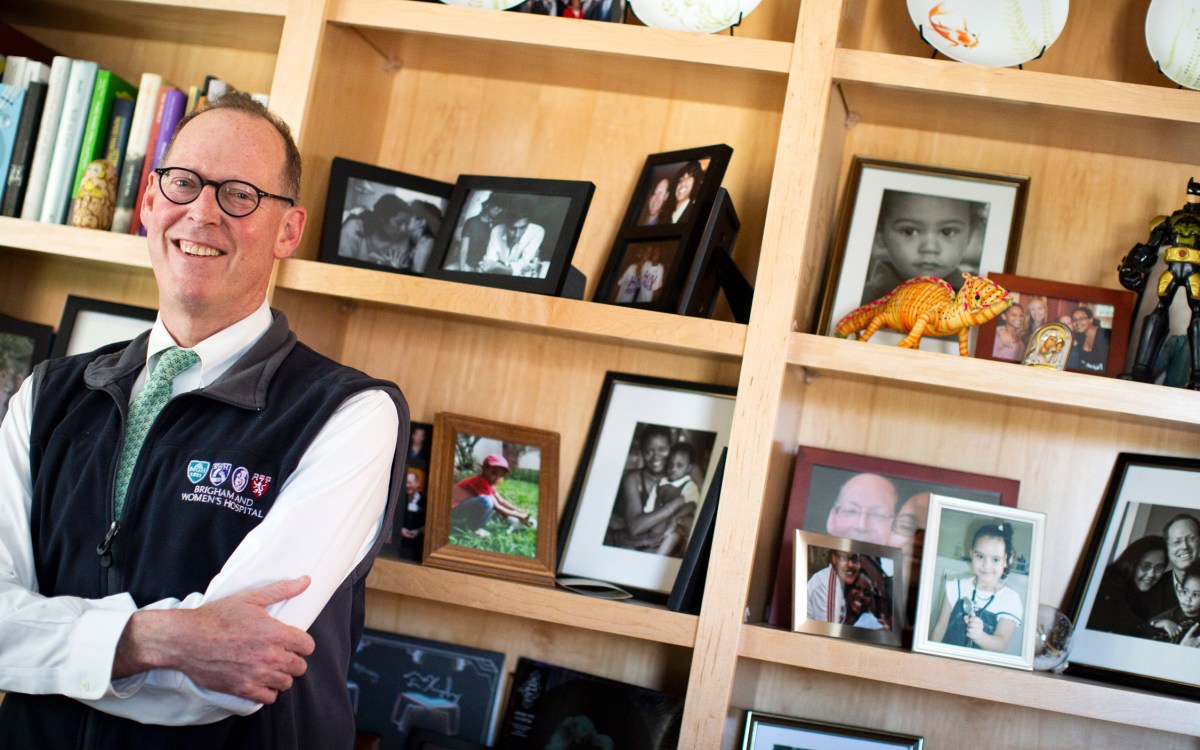
José Andrés posits that food is not only about cooking, but is interconnected with many other disciplines and areas of life.
AP Photo/Cliff Owen
Food for thought
Superstar chef José Andrés visits SEAS with a message
When Americans think of superstar chef José Andrés, most envision him either decked out in a stained, worn out vest, cooking and feeding thousands of victims of natural disasters in places like the Bahamas, Puerto Rico, or Haiti, or in his kitchen whites opening some hotly-anticipated new restaurant in his native Washington, D.C., New York, or Las Vegas.
This week, however, Andrés put all that aside to judge a student science fair at the John A. Paulson School of Engineering and Applied Sciences (SEAS) and to join food science writer Harold McGee in marking the 10th anniversary of the popular Science + Cooking course and lecture series. McGee’s essential bible, “On Food and Cooking” became the course textbook, and both men have been instrumental in the program’s success.
The course sprang unexpectedly from a 2008 Harvard visit by the legendary Ferran Adrià, whose groundbreaking, three-Michelin-star restaurant in Spain, El Bulli, helped inspire the molecular gastronomy trend, which was then a new, experimental approach to cooking that bucked tradition and conventional wisdom. Adrià spoke to physics students about what was still a novelty in kitchens and in classrooms: the science that underpins cooking. The talk proved so popular and inspirational that SEAS faculty David Weitz and Michael Brenner turned it into an undergraduate Gen Ed course featuring guest lectures by world-renowned chefs. Adrià and Andrés, who worked under Adrià early in his career, led the very first lecture in September 2010.
It was at El Bulli where Andrés said he first saw how exciting and necessary it was to understand the science of food.
“We began asking ourselves the bigger questions. Not only how to do the things … we started asking ourselves the why of the things that happened, and out of learning and out of the answers … we became so much more powerful because we had knowledge we never had before,” he said during his talk Monday.
Andrés, who is also involved in immigration-reform advocacy, is clearly a person drawn to bigger questions.
“Sometimes some of the bigger problems on earth have very simple solutions, and sometimes the solution is stop talking and start doing.”
José Andrés
During an interview with the Gazette, Andrés said that he remains closely involved with Harvard, despite a punishing schedule that includes opening Mercado Little Spain with Adrià and brother Albert Adrià, which The New York Times just called the city’s top new restaurant of 2019, because he believes in fostering the dialogue between the culinary and scientific worlds, but also because it’s important for students to see how food is connected to so many other realms from national security, the law and public policy, to public health, medicine, climate, history, and even moral philosophy.
“You almost need an understanding of each sector to try to end some of the bigger problems of the world,” he said. If today’s students are to take on these issues, they need to see how it all fits together. “So that’s why we’ve been coming back, because it’s important to invest in that future.”
Because food is so integral to daily life and is also a lens through which many of the biggest issues of our time can be understood, Andrés hopes one day to convince an academic institution such as Harvard to convene scholars, practitioners, and other experts who will consider food a serious interdisciplinary area of study, like humanities.
“We are who we are thanks to the food. It gives us a purpose in life; it gives us a purpose on earth; it gives us an understanding of where we come from; it gives us an understanding of where we are,” he said, adding, “I do believe an institution like Harvard has to do more to bring food to the fore.”
Just months after his first Harvard lecture, Andrés’ career took a new direction when a 7.0 magnitude earthquake hit Haiti. Inspired by the work of Paul Farmer, Harvard’s Kolokotrones University Professor of Global Health and Social Medicine, Andrés brought his cooking and leadership skills to Port-au-Prince and began serving meals to hundreds, then thousands, who had been devastated by the disaster. That experience led to the establishment of World Central Kitchen, his small but high-impact nongovernmental organization (NGO), which prepares and serves food to victims of natural disasters worldwide.
He advised students eager to tackle the world’s big problems, like hunger or the climate crisis, but unsure where to start to practice what they preach in their everyday lives and to direct some of their efforts toward making change in their own neighborhoods or communities, instead of shooting for the moon.
“Sometimes some of the bigger problems on earth have very simple solutions, and sometimes the solution is stop talking and start doing,” said Andrés. “I didn’t begin thinking I was going to do 4 million meals in Puerto Rico, 2.5 million meals in the Bahamas as of this week, or half a million in Indonesia or 450,000 meals in Guatemala. We began with one very simple [goal]: Let’s just start feeding today one person. OK, maybe we feed an entire church. How many? Five hundred. … Once you do that, you see that then, actually, you can do more. Then you keep building on that.”
Andrés, who has been critical of the slow, scattershot response by the U.S. government and by some of the larger disaster-relief organizations during the aftermath of Hurricane Maria in Puerto Rico and Hurricane Dorian in the Bahamas, said the overemphasis on planning and evaluation of a problem is one of the “biggest enemies of solutions.”
“We need less assessments and more doing. Especially in the NGO world, there’s way too many assessments,” he said. “We need to have NGOs’ mentality [be] that their outcome is to be out of business because success means that you’re not needed. I know it’s easier to say than to do, but if we don’t have that purpose from the very beginning, it’s never achievable, and we need to start changing the rules of engagement.”







